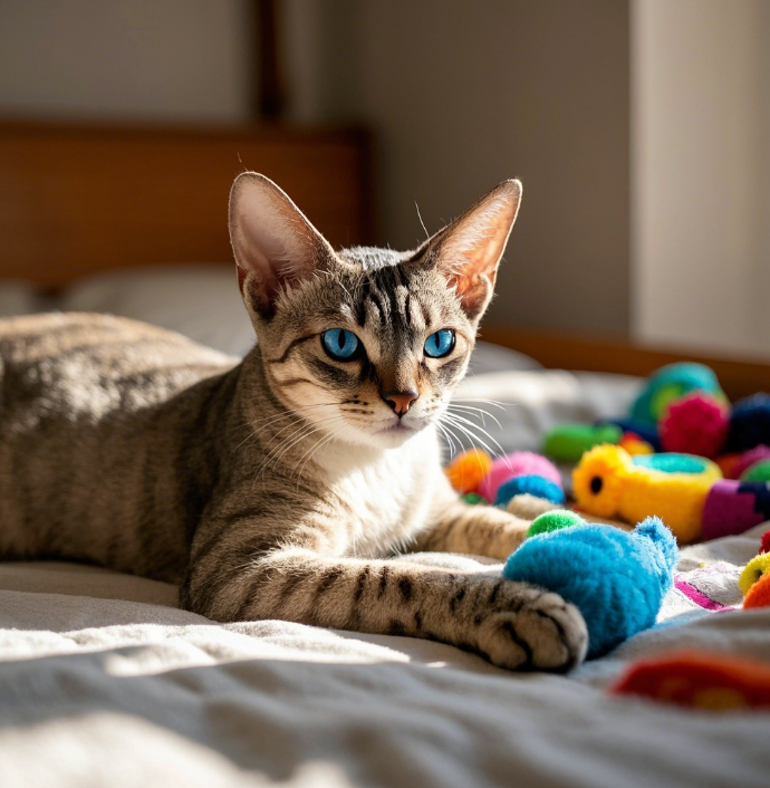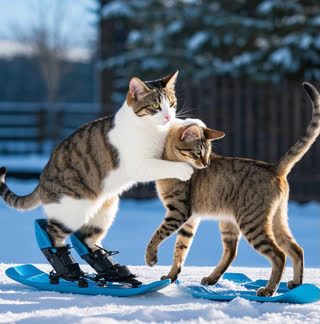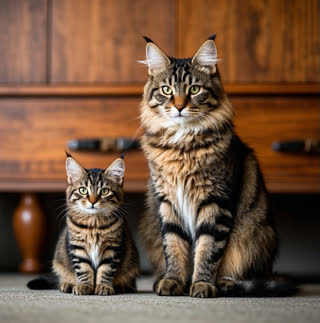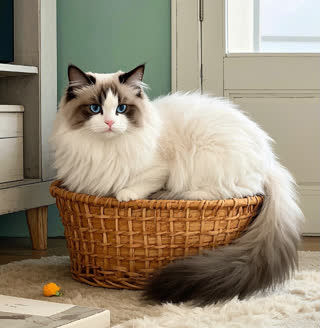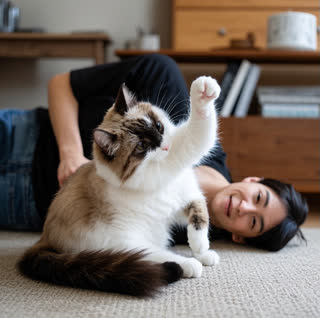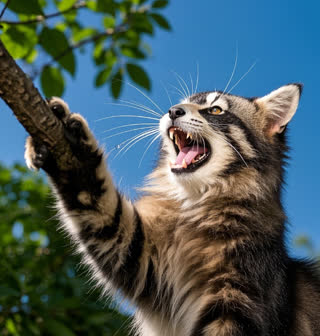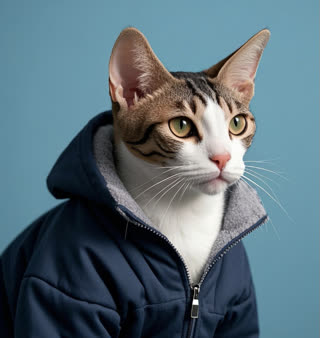The
Devon Rex cat is a breed unlike any other, celebrated for its curly coat, bat-like ears, and larger-than-life personality. Originating in Devon, England, in the 1960s, these cats emerged from a natural genetic mutation that gave them their distinctive appearance and spirited demeanor . While their unique looks often steal the spotlight, it’s their
Devon Rex cat personality traits—a blend of curiosity, loyalty, and boundless energy—that truly captivate cat lovers. In this comprehensive guide, we’ll explore their behavioral quirks, care requirements, and why they’re the perfect choice for households seeking an interactive, dog-like feline companion.
The Devon Rex’s story begins with a chance discovery in a British barn. In 1960, a curly-coated kitten named Kirlee was born to a stray calico, sparking the development of a new breed . Breeders later crossed Kirlee with Siamese and British Shorthairs to refine the Devon Rex’s traits, resulting in a cat with:
Curly, Hypoallergenic Coat: A short, soft coat with a texture often compared to suede or velvet. While not entirely hypoallergenic, their minimal shedding makes them a better choice for allergy sufferers .
Exotic Appearance: Large, low-set ears, a wedge-shaped head, and expressive eyes that range from amber to green.
Muscular Build: Despite their delicate appearance, Devon Rex cats are agile climbers and jumpers, thanks to their strong hind legs .
Their appearance mirrors their Devon Rex cat personality traits—a balance of elegance and mischief that sets them apart from other breeds.
Devon Rex cats are known for their outgoing and affectionate nature. Here’s a breakdown of their key traits:
Devon Rex cats are perpetual kittens, retaining their playful energy well into adulthood. They thrive on interactive toys, puzzle feeders, and games of fetch, often inventing their own mischief when bored . Their acrobatic antics—like scaling curtains or leaping onto high shelves—make them entertaining companions for families with children or active households.
These cats form deep bonds with their human companions and crave constant attention. They’ll follow you from room to room, curl up in your lap, or even "help" with household chores . Unlike more independent breeds, Devon Rex cats dislike being left alone and may develop separation anxiety if neglected.
Devon Rex cats are quick learners, often compared to dogs in their ability to understand commands. They can be taught to walk on a leash, play fetch, or even use a toilet . Their curiosity drives them to explore every corner of their environment, so providing climbing structures and hiding spots is essential to prevent boredom.
While not as talkative as Siamese cats, Devon Rex cats communicate through a range of chirps, trills, and purrs. They’ll "chat" with you during playtime or meow softly to request attention .
Devon Rex cats get along well with other pets, including dogs and cats, thanks to their friendly and non-confrontational nature. They’re also patient with children, making them an ideal family pet .
To ensure your Devon Rex cat thrives, consider these care tips:
Feed your Devon Rex a balanced diet rich in animal-based protein to support their active lifestyle. Monitor their calorie intake to prevent obesity, as they’re prone to weight gain . Avoid foods with fillers like corn or wheat, and consult your vet for dietary recommendations.
Their curly coat requires minimal brushing—weekly wiping with a damp cloth or grooming mitt to remove loose hair and distribute natural oils . Regular ear cleaning is crucial to prevent wax buildup, and dental care (e.g., brushing or dental treats) helps avoid periodontal disease .
Provide interactive toys, scratching posts, and climbing trees to keep them physically and mentally engaged. Devon Rex cats also enjoy water play, so a shallow pool or running faucet can offer enrichment .
While generally healthy, Devon Rex cats may be prone to:
Hypertrophic Cardiomyopathy (HCM): A genetic heart condition requiring regular veterinary checkups .
Patellar Luxation: Kneecap dislocation that may require surgery in severe cases .
Skin Sensitivities: Their thin coat makes them vulnerable to sunburn and dry skin, so indoor living is recommended .
Devon Rex cats adapt well to apartment living as long as they receive enough exercise and mental stimulation. A cat tree or window perch will satisfy their climbing instincts .
Their sociable nature makes them compatible with other pets. Introduce new animals gradually and provide separate feeding stations to avoid conflicts.
Use positive reinforcement to train your Devon Rex. Reward good behavior with treats or praise, and redirect unwanted habits like scratching furniture to appropriate surfaces .
While their coat produces fewer allergens than other breeds, Devon Rex cats are not entirely hypoallergenic. Allergic individuals should spend time with the breed before adoption .
Their grooming needs are minimal, and their adaptable nature makes them suitable for busy households. However, their need for companionship requires time and attention .
Despite their delicate appearance, Devon Rex cats are muscular and agile. Regular exercise and a balanced diet help maintain their physical health .
The Devon Rex cat breed is a delightful blend of charm, intelligence, and playfulness. Their affectionate personalities, mischievous antics, and adaptability make them perfect for families, singles, and seniors alike. By understanding their unique needs and providing a loving environment, you’ll enjoy a lifetime of companionship with these extraordinary felines.
Key Takeaways:
Personality: Playful, affectionate, intelligent, and sociable.
Care: Regular grooming, balanced diet, and mental stimulation.
Health: Monitor for HCM and skin issues; schedule routine vet visits.
If you’re considering adding a Devon Rex cat to your family, their loyalty and zest for life will undoubtedly enrich your home.
